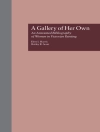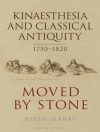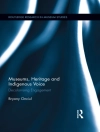In ‘Thoughts on Art and Life, ‘ Leonardo da Vinci presents a profound exploration of the relationships between artistic practice, nature, and the human experience. This work invites readers into da Vinci’s mind as he contemplates the essence of beauty, creativity, and the philosophy of observation that underpins his artistry. Characterized by a blend of narrative and reflective prose, the text employs a rich, poetic language that mirrors the intricate detail evident in his paintings. Set against the backdrop of the Renaissance, a period marked by the revival of humanism and empirical inquiry, this collection reveals the synthesis of science and art that da Vinci championed. Leonardo da Vinci, a polymath renowned for his contributions to art, science, and engineering, cultivated his ideas through relentless observation and experimentation. Growing up in Florence, a hub of Renaissance thought, Leonardo drew inspiration from both classical texts and the natural world around him. His unique background fueled his desire to illuminate the principles of aesthetics and the importance of keen observation, resulting in this introspective work that encompasses his life’s reflections. ‘Thoughts on Art and Life’ is a must-read for anyone seeking to understand the foundations of artistic genius and the philosophical inquiries that continue to resonate in contemporary discussions of creativity. By navigating da Vinci’s insights, readers can engage with timeless questions about the role of the artist in society and the intricate dance between art and life.
Про автора
Leonardo da Vinci (1452–1519), a towering figure of the Italian Renaissance, was a polymath whose areas of interest included invention, drawing, painting, sculpture, architecture, science, music, mathematics, engineering, literature, anatomy, geology, astronomy, botany, writing, history, and cartography. Often described as the archetype of the Renaissance Man, da Vinci is widely considered one of the greatest painters of all time and perhaps the most diversely talented person ever to have lived. His contributions to art and science in the form of countless innovations and observations are legendary, and his masterpieces, such as the ‘Mona Lisa’ and ‘The Last Supper, ‘ remain cultural icons to this day. While best known for his artistic works, da Vinci’s literary compositions provide insightful views into his thought process and philosophy. ‘Thoughts on Art and Life’ is a compiled collection of da Vinci’s writings which offers a window into the intellectual concerns and insights of this Renaissance master. The writings elucidate his views on aesthetics, the creative process, nature, and life, embodying the very essence of Renaissance humanist ideals. Da Vinci’s literary style is reflective of his vast curiosity and analytical prowess, often showcasing a blend of empirical observation and poetic language.












